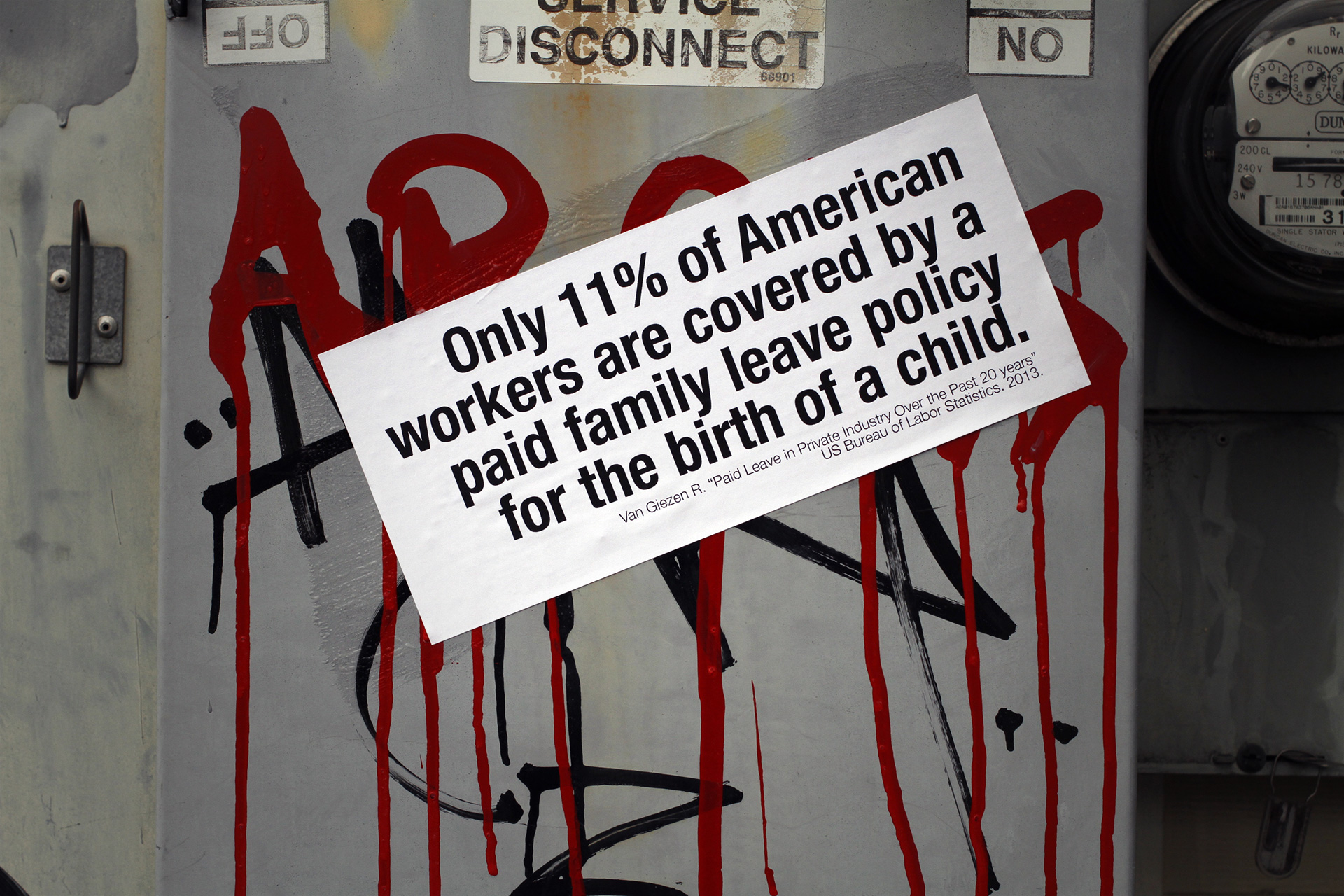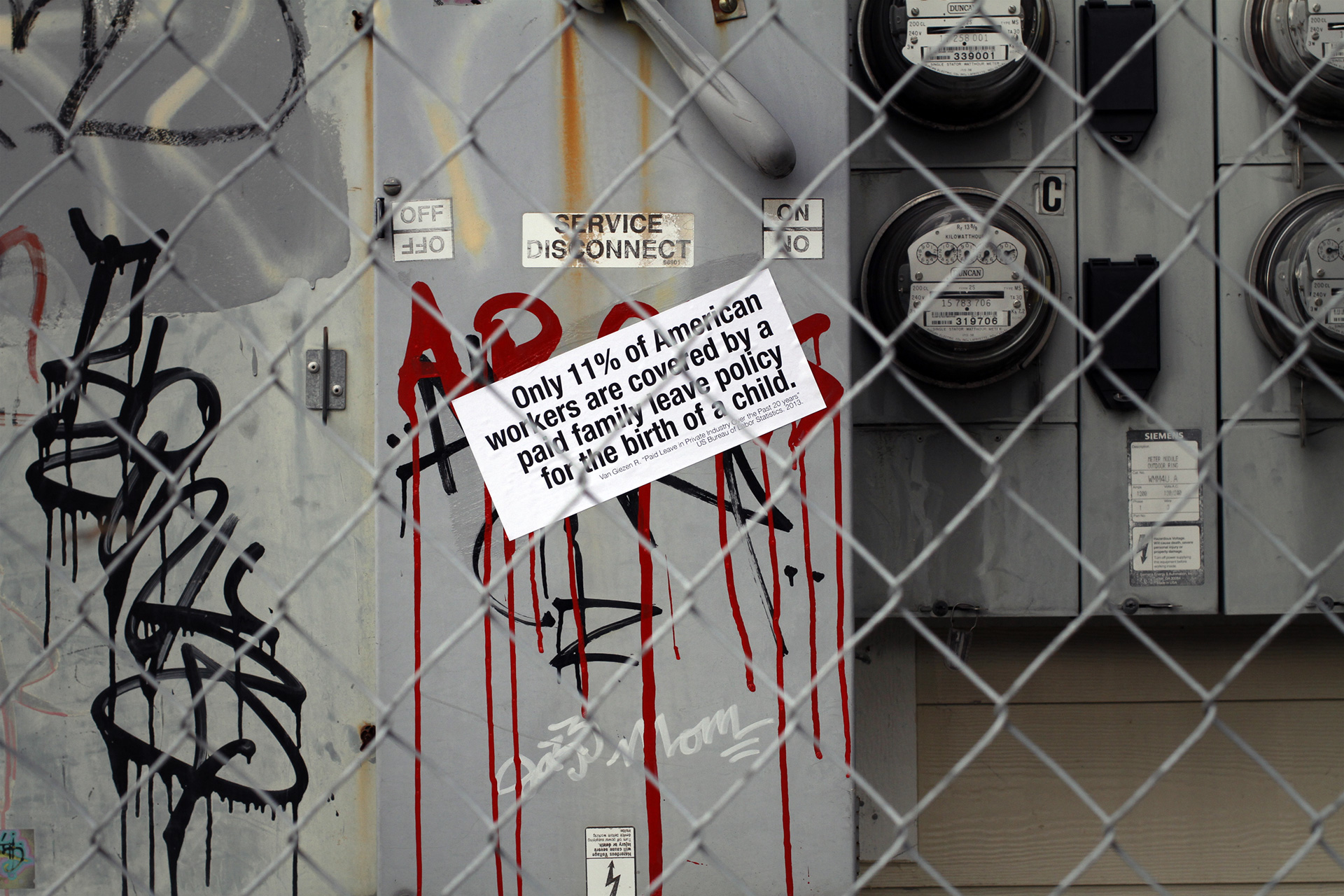Paid parental leave is a pretty simple concept: that we should give working parents paid time off to be with their newborn child during the first days of life. This is such an overwhelmingly popular idea that many wealthy nations have had such provisions for more than 100 years (Switzerland in 1879, Germany in 1911, as two examples). Over the last century, every single wealthy country in the world has caught onto this idea, with the exception of the United States.
The US does parental leave (also variously called “maternity leave”, “family leave”, and “paternity leave”) much in the same way it handled healthcare until a few years ago — it’s your own personal responsibility to plan for it, and if you’re lucky enough to have a good job, your employer may provide benefits as a perk to incentivize you not to change jobs and work at a competitor. It seems that almost weekly there are major news stories about high profile American employers revising their paid parental leave policies to offer increasingly generous benefits. But what these stories often leave out is that roughly 9 out of 10 American workers are not covered by such policies.
Netflix makes a great example: they offer a year or more of paid leave to high paid employees in their streaming division (which is what makes it into the news), but hourly employees who, for example, work in DVD distribution centers, are left out.
This is problematic for many reasons, but most prominently because the health benefits of paid leave are presently only accruing to the children of the most advantaged employees (those with college educations, earning high wages, etc). Or, put another way, the children of low wage earners are harmed by a lack of parental leave. They are at a health disadvantage.
This is problematic because we know that the same sub-populations in American society most at risk of the sort of health outcomes that we can all agree no one should endure (for example, the death of an infant or a mother) are exactly the families that would most benefit from the protective effects of paid parental leave (families of color, families of lower socioeconomic and educational status). Paid parental leave, in effect, could be a medicine we offer to — at minimum — those families most at risk of these terrible outcomes. But, in fact, it’s a medicine we could easily make available to all working families, and for almost no expense.
The cost of such social insurance programs is a fraction of a percent of a worker’s salary, and can function exactly as any other social insurance, such as disability insurance. Rather than expecting new parents, who may by in their 20s and only have been working for a few years, to save up enough money to quit their jobs during the birth of a new child (and then find new jobs afterward), workers pay a tiny fraction of each paycheck into an insurance pool, and when they have a child they are able to take time off. When they come back to work and start earning paychecks again, they are effectively paying back the 6 month “loan” the insurance program extended them. It works because, much like becoming injured on the job, it’s actually a fairly infrequent event. And, as a population-wide social insurance, if you change jobs, you don’t have to wait several months or a year for coverage to “kick in”; it follows you from job to job, just like social security, retirement investments, etc.
I portrayed parental leave as a “medicine” above, and perhaps that strikes you as a bit of a reach. However in favor most of us are of letting parents have several weeks or even months to be with their newborn child, it might not be obvious to us that this has significant health benefits. But it does. A paper published June of 2016 in the journal Healthcare summarizes the last 20 years of health research on paid parental leave. Among its benefits are significant increases in the rates of breastfeeding, decreases in low birthweight babies, better health for parents, increased rates of child vaccination, and reductions in infant and child mortality. The health benefits that studies show dozens of other wealthy countries began to enjoy in the 1960s and 1970s imply that thousands of American infants deaths could be prevented each year if we had universal paid parental leave.



